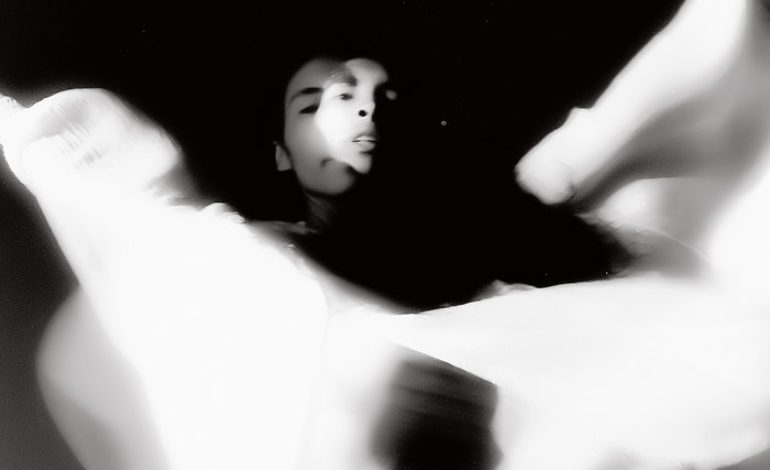

The invention of the electro-tech orchestra
The soulful, experimental artist SPELLING, AKA Chrystia Cabral, strives to create a gothic-inspired pop realm within her new music. Bordering somewhere along the lines of bold and obscure, in her last three albums, she has pushed boundaries. Her 2017 debut was with the entirely self-produced Pantheon of Me and was Bandcamp’s #4 record of that year after she only just started to figure out music production in 2015. Pitchfork labeled it “among the most overlooked debuts this calendar year.”
Her songs themselves are something out of dreams, with all-encompassing soundscapes enchanting every tune. The result is a divine and soulful kind of music, always complex and never boring. With a wide vocal range and instrumental fearlessness, SPELLING has created music that is distinctively hers.
From Oakland, California, she is known for working with visual artist Catalina Xavelena to match sounds and provide a visual to the audio, creating a persona beyond the music. They strive to work in and around the Oakland area to promote music from BIPOC, with SPELLING saying, “As a Black and Latinx artist, I produce visions that reject a white-supremacist, hyper-capitalist America.”
Her new double LP, The Turning Wheel, is split into two halves: “Above” and “Below.” The first half of the album is joyful and bombastic, while the last half is moody and gothic. This album also features over 31 collaborators and is entirely self-produced by Cabral herself.
The album starts off with “Little Deer.” With abounding piano and string intro, the song is a strong start to a promisingly whimsical album. SPELLING’s whooshing “oohs” take listeners on a spiritual journey through plucking strings, pulsating drums and a choir of chimes: a powerful ode to innocence. The layered instrumentals, including features from a vibraslap, become like a cascading fleet of sound over her distinct voice, closely akin to pop singers of the ’80s.
In the song “Always,” Cabral sings, “please don’t steal my heart/ don’t make me start over again.” True to the lyrics, this is a pleading ’70s-esque pop tune with a harp, a retro bass and bright, sweeping soundscapes throughout. The dueted lyrics shape the ballad and becomes super reminiscent of 10cc’s “I’m Not in Love.” In “Awaken,” a soft guitar turns into a collection of voices in harmony and takes on that gospel tone SPELLING seems to fully understand. It takes an epic turn with the introduction of bells, percussion and deep orchestral features but keeps that modern rock band tone with the presence of the guitar.
“Emperor with an Egg” features soft and sometimes eerie vocals, subtle bongos and a very distinct set of chord changes within the low strings. This one sounds mystic and also has a quicker moving synth. This song might fit very well in the Emperor’s New Groove soundtrack.
“Boys at School” is a song about a 16-year-old’s first experience with romance and is built with piano and organ intertwining in the foreground. It sounds almost spooky to start, then takes a turn toward alien with horns and a laser-like sound effect. It has the “vibes” of an old Dracula movie, but with some modern twists. The seven-minute track is one of the singles from the album, along with “Turning Wheel” and “Little Deer.” The piano takes the listener on an emotional journey as it waxes and wanes, as well as the synth and a vast collection of other obscure and common instruments.
“Queen of Wands” feels very much like it’s from a musical Harry Potter with its minor key, quick-moving violin and weird chord changes. SPELLING shows off her very low registers here. In “Revolution,” piano is at the heart of the tune again, and with heavenly oohs and subtle horns, it feels all-encompassing. There are points throughout the song where all the instruments come together for a quick progression of notes, and it’s so satisfying amongst the layered madness.
The closer for the album is “Sweet Talk” and is an ode to SPELLING’s own love for music. It feels very much like a closer: a sweet ending ballad with a notable feature from a bass clarinet. This is an epic last shout on the album.
SPELLING is, to use an overused term, one of the few artists that genuinely seems to want to push down genre boundaries and create music beyond the ordinary. Taking inspiration from ’70s-era pop, modern orchestral mixes and early 2000s synth and electronica, she is confidently pioneering a new genre of all-encompassing music with The Turning Wheel.
